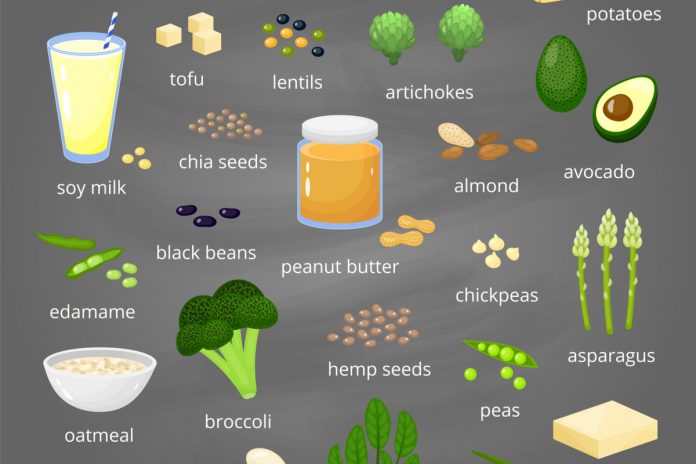There are various sources of protein, these nine are a great source of protein if you are a vegetarian or leaning towards a vegan diet
Vegetarians are often concerned about the lack of protein in their diet. While one may feel that there is a limited source of protein to choose from, however, there is a range of vegetarian foods that are a rich source of protein.
The daily protein requirement for every individual ranges between 25-50 grams. This can be achieved by incorporating different protein sources into every meal. For instance, lentils are high in protein and a bowl of moong dal contains approx. 14 grams of protein. So by adding one protein-rich element to every meal will fulfil the daily protein requirement of the body.
Here are nine sources of vegetarian/vegan protein that you can incorporate into your diet.
- Soybean – Soy milk, soya chunks, tofu, tempeh are all different varieties of soybean. Soy is a rich source of protein that helps provide essential amino acids to the body. Soybean contains iron, calcium, vitamin B and other minerals. It contains approx. 10-18 grams of protein per 100 grams.
- Chickpeas – Popularly known as chole chana and garbanzo beans, it is a legume that is high in protein content. It is a rich source of fibre, iron, phosphorus and folate. 170 grams, that is, one cup of cooked chickpeas contains 15 grams of protein. Roasted chickpeas with some chilli, turmeric and chaat masala make for a protein-rich mid-day snack.
- Nutritional yeast – A popular plant-based ingredient that is used for cheesy flavouring. If you are looking to add some cheese to your dish, but want it to be dairy-free then nutritional yeast is what you need. It is rich in protein, fibre and is fortified with minerals and nutrients. Two tablespoons of nutritional yeast contain 8 grams of protein. You can sprinkle it on your pasta or popcorn.
- Green peas – Mattar can make any dish delicious. It not only adds colour but also provides some much-needed health benefits and nutrients. Green peas are rich in fibre, vitamin A, C, K, folate and zinc among several other nutrients. A cup of cooked green peas contains 9 grams of protein.
- Quinoa and amaranth – Popular gluten-free choice for many. Quinoa and amaranth grains are a great addition to your diet. It serves many health benefits and is rich in protein, fibre, iron, phosphorous and complex carbs. One cup of cooked amaranth and quinoa provides 8-9 grams of protein. You can choose either quinoa or amaranth according to your preferences. A bowl of quinoa salad can be a filling meal.
- Oats – Oatmeal pancakes can make an amazing breakfast. Rich in protein, fibre and easy on your gut. One cup of dry oats contains 12 grams of protein. If you are looking for a gluten-free, protein-rich substitute for all-purpose flour, oat flour is what you need. Baking with oat flours is an excellent, guilt free option for decadent cakes and desserts.
- Chia seeds – These seeds contain a good amount of calcium, zinc, protein, fibre and omega-3 fatty acids among several other nutrients. Chia seeds taste bland and have a gelatinous texture, however, it makes a great addition to smoothies, granolas and the popular chia pudding topped with seasonal fruits. Half a cup of soaked chia contains 16 grams of protein.
- c– Button mushrooms are low in calories, sugar and high in protein and vitamin D. They are also an excellent source of vitamin B12. One cup of uncooked mushrooms contains 3 grams of protein. However, mushrooms provide a range of health benefits that one can benefit from.
- Avocado – Thick, creamy, protein twist to your diet. Ripe avocado contains healthy fats and is a great source of nutrients. It protects the heart and lowers blood pressure. One medium-sized ripe avocado contains 4 grams of protein. A bowl of guacamole with some corn nachos would add to your daily requirement of protein.
Meeting your daily protein requirement is essential for your health. Your source of protein need not come from meat or eggs or even protein supplements. There is a variety of vegetarian protein that one can incorporate into their diet. Some of these sources are already part of your diet. You can create fun recipes around these sources and perhaps share them with us!








